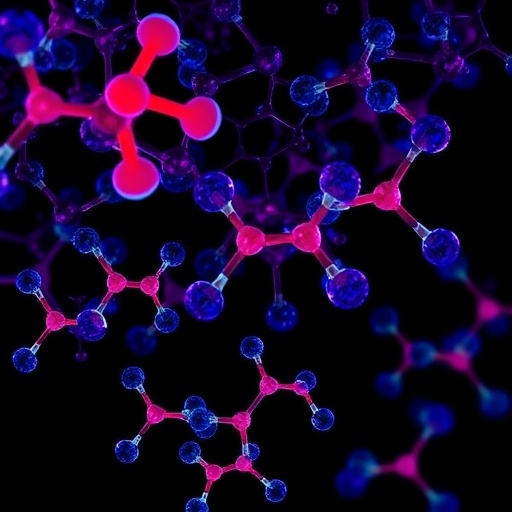Lymphomas represent a complex group of malignancies derived from cells of the immune system, predominantly affecting lymphoid organs such as lymph nodes, spleen, and bone marrow. Among the diverse lymphoma subtypes, anaplastic large cell lymphoma (ALCL) stands out as a rare yet particularly aggressive form of T-cell lymphoma. This cancer predominantly manifests in children and young adults and belongs to the broader category of non-Hodgkin’s lymphomas. Despite advances in understanding its molecular drivers, ALCL remains a therapeutic challenge, especially due to its potential to develop resistance to conventional treatments.
Recent collaborative research efforts spanning prominent institutions—including the Medical University of Vienna’s Comprehensive Cancer Center, the European Institute of Oncology in Italy, Boston Children’s Hospital and Harvard Medical School in the United States, and the University of Cambridge in the United Kingdom—have uncovered critical insights into the epigenetic mechanisms underlying ALCL pathogenesis. Published in the high-impact journal Leukemia, these findings illuminate the nuanced role of histone deacetylases (HDACs) in lymphoma progression and reveal promising therapeutic avenues involving HDAC inhibition.
Epigenetic regulation, referring to heritable but reversible modifications that influence gene expression without altering the underlying DNA sequence, plays a pivotal role in cancer biology. Among the variety of epigenetic modifications, DNA methylation and histone modification stand prominently. Histone deacetylases, or HDACs, modulate chromatin structure by removing acetyl groups from histone proteins, thereby generally condensing chromatin and repressing transcriptional activity. Notably, mutations and dysregulation of epigenetic modifiers including HDACs are among the most frequent molecular anomalies in tumors, positioning them as attractive and druggable targets in oncology.
While HDAC inhibitors have already entered clinical use for certain cancer types, including hematologic malignancies, the intricate role of specific HDAC isoforms remains incompletely understood. In the context of ALCL, the role of HDAC1—a key member of the HDAC family—has now been dissected through multifaceted molecular and preclinical analyses. The researchers employed both pharmacological inhibition using entinostat, an HDAC inhibitor currently undergoing such clinical trials, and genetic silencing approaches to probe HDAC1’s function in a sophisticated mouse model of ALCL.
Strikingly, treatment with entinostat delayed the onset and progression of lymphoma in the model organisms, with some cases showing outright prevention of tumor development. This underscores the therapeutic potential of HDAC inhibitors in overcoming resistance and extending the efficacy of existing ALCL treatments. Moreover, entinostat demonstrated efficacy in tumor cells derived from lymphoma patients with prior therapeutic resistance, suggesting its value in addressing refractory disease.
However, an unexpected twist emerged from genetic experiments targeting HDAC1 specifically in T cells. Contrary to the anticipated tumor-suppressive effects, the genetic knockout of HDAC1 accelerated lymphoma growth drastically in vivo. This surprising finding reveals a complex, context-dependent role for HDAC1, where it may exert protective functions during particular stages of lymphoma development, possibly by maintaining chromatin organization and limiting aberrant signaling cascades within the malignant T cell compartment.
At the molecular level, the absence of HDAC1 resulted in profound chromatin remodeling with consequential shifts in gene expression patterns. Particularly, key oncogenic signaling pathways including the platelet-derived growth factor receptor beta (PDGFRB)-STAT5 axis, as well as T cell receptor (TCR)-associated signaling networks, were markedly upregulated. Dysregulation of these pathways is well-recognized for promoting tumor proliferation, survival, and dissemination, thereby offering mechanistic clues to HDAC1’s paradoxical effects on tumor dynamics.
The dualistic role of HDAC1 as both a tumor suppressor and a potential oncogenic modulator complicates but enriches our understanding of epigenetic regulation in ALCL. It also underscores the necessity of precision medicine approaches aimed at carefully tailoring HDAC inhibitor application according to the molecular and cellular context of the disease. Such nuanced insights are essential to avoid unintended consequences such as tumor acceleration due to indiscriminate HDAC1 inhibition.
The current findings advocate for advancing HDAC inhibitors such as entinostat into clinical trials specifically designed for ALK-positive ALCL patients exhibiting treatment resistance or relapse. Beyond offering a novel therapeutic strategy, HDAC inhibition can potentially reprogram the epigenetic landscape of tumor cells, sensitizing them to other targeted or immunotherapeutic agents in the future.
Future research directions involve unraveling how HDAC1 interacts dynamically with other epigenetic modulators and signaling pathways across different lymphoma stages, as well as identifying biomarkers predictive of response to HDAC-targeted therapy. Integrative multi-omics and single-cell profiling techniques will be instrumental in delineating these complex regulatory networks with greater resolution.
In conclusion, this landmark study not only deepens our mechanistic comprehension of ALCL pathogenesis through epigenetic lenses but also marks a critical step towards more efficacious and personalized treatment paradigms. The intricate balance of HDAC1 activity highlights the delicate interplay between cancer-promoting and tumor-suppressing forces within lymphomas and opens new avenues to harness epigenetic therapies against aggressive T-cell malignancies.
As the fight against lymphoma continues, the promising potential of HDAC inhibitors like entinostat to delay or prevent tumor onset, especially in resistant cases, brings new hope for patients and clinicians alike. This paradigm-shifting research underscores the transformative power of cross-disciplinary collaborations spanning molecular biology, pharmacology, and clinical medicine in overcoming cancer’s most daunting challenges.
Subject of Research: The epigenetic role of HDAC1 in ALK-positive anaplastic large cell lymphoma and implications for HDAC inhibitor therapy.
Article Title: HDAC1 acts as a tumor suppressor in ALK-positive anaplastic large cell lymphoma: implications for HDAC inhibitor therapy
News Publication Date: 2-Apr-2025
Web References: https://doi.org/10.1038/s41375-025-02584-9
Keywords: Lymphoma, Anaplastic Large Cell Lymphoma, ALK-positive ALCL, HDAC1, Histone Deacetylase, Epigenetics, HDAC Inhibitors, Entinostat, T-Cell Lymphoma, Cancer Therapy, PDGFRB-STAT5 Signaling, Treatment Resistance
Tags: ALCL treatment challengesanaplastic large cell lymphomacollaborative cancer researchepigenetic mechanisms in cancergene expression regulation in cancerHDAC inhibition therapieshistone deacetylases in lymphomaimmune system malignancieslymphoma progression researchnon-Hodgkin’s lymphoma subtypesT-cell lymphomastherapeutic resistance in lymphomas





